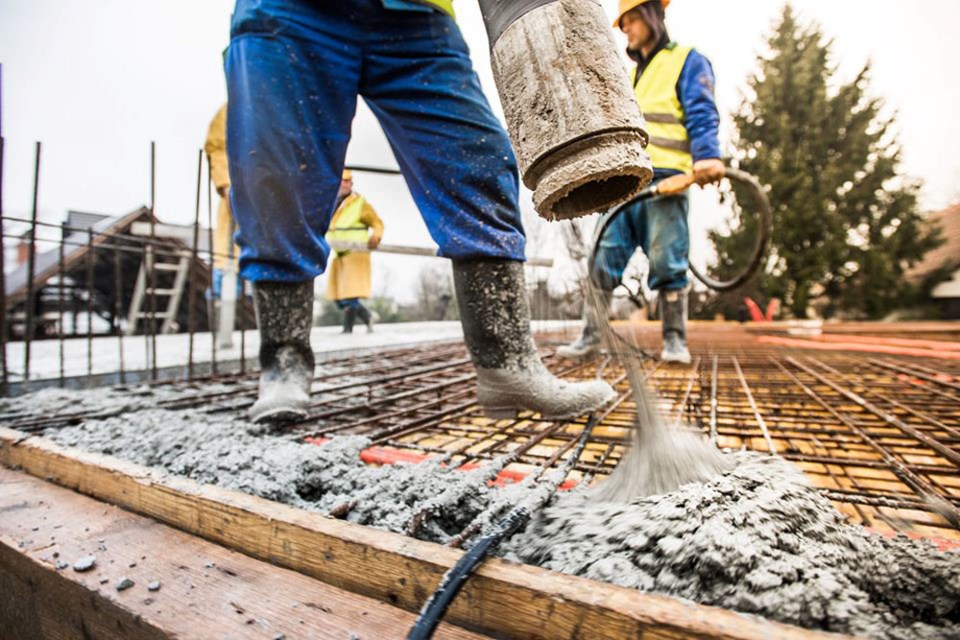Try staying two metres away from your co-workers when you need their help on a construction site. It doesn't work.
For many construction workers, the nature of their jobs makes it hard or even impossible to abide by the guidelines set out by the provincial health officer amid the COVID-19 pandemic.
As a result, some workers are saying it may be best to shut down sites while the province is in a state of emergency.
"The construction industry and worksites — we are not able to follow these guidelines that are set out from health officials. It's just not possible, it's not practical and to make all these exceptions — I don't see that that's helping flattening the curve," said a worker.
The Chief is protecting this person's identity due to the extraordinary circumstances created by COVID-19 that pose a threat to employment.
The worker said his employer has asked him to continue doing its job despite the fact it's virtually impossible to follow the provincial health officer's rules about social distancing.
This worker is not alone.
A recent statement from a group representing construction workers sounded warning sirens over working conditions contravening the advisory of the provincial health officer.
To curb the spread of COVID-19, Dr. Bonnie Henry has asked British Columbians to stay two metres away from each other, frequently wash hands and avoid gathering in close-knit groups.
Amidst these warnings, the BC Building Trades Council issued a statement saying that workers are at risk on many occasions.
"Workers are pleading for help — this is urgent,"said BC Building Trades executive director Andrew Mercier in a statement. "The Building Trades are focused on the facts on the ground. I have been in direct contact with the top brass at WorkSafeBC about this. We need more hand-washing stations. We need better social distancing. Regulations on paper mean nothing if they are not being enforced on the ground."
The council said that many workers have reported they do not have access to adequate washroom facilities, running water, soap or hand sanitizer. They often share tools and work together in small spaces that do not allow them to abide the recommendations for social-distancing from the provincial health officer.
There have also been reports of people working alongside others who are visibly sick.
The council called for WorkSafeBC to address the issues.
In answer to the concerns, WorkSafeBC issued a statement to The Chief saying that it is responding by launching an "inspectional initiative" for construction sites.
"This would include ensuring construction sites are following direction from the provincial health officer and are complying with occupational health and safety requirements," reads the statement.
"In terms of enforcement, WorkSafeBC expects construction employers to adhere to the provincial health officer's directions. WorkSafeBC will consider issuing orders for non-compliance, and may issue stop-work orders if there is a high risk of serious illness; penalties may be imposed for flagrant violations."
The statement added that employers in B.C. are required by regulation to provide a minimum standard around the provision of washrooms and hand-washing facilities.
It also noted that workers in B.C. also have the right to refuse unsafe work if they believe it presents an undue hazard.
Still, while some may say that it's time for construction workers to stop, a Squamish lawyer says there can be complications.
In a letter penned to The Chief earlier this week, local lawyer George Hall said that many work contracts lack a force majeure clause, which allows a party to avoid legal liability when foregoing its contractual obligations due to events outside its control.
Generally, these clauses include a list of specific 'majeure' events that can include acts of God, disasters, changes to laws, or in this case, pandemics.
However, Hall said that this is not a standard clause in commercial contracts. He said a study from Kira Systems analyzed 130 commercial contracts and found only 94 had force majeure clauses. Only 13 of those included specific reference to public health events such as flu, epidemics, serious illness or plagues.
However, there is a possible alternative.
Should a contract lack a force majeure clause, it's possible to invoke the doctrine of frustration, he said.
The principle is similar, but the threshold for engaging it is higher, Hall said. This is under the domain of the provincial governments. In B.C., it falls under the Frustrated Contract Act.
Similar to a force majeure, it's invoked during an unforeseen event that causes radical change in the performance of a contract.
Whether it can be invoked in these circumstances varies widely depending on the type of construction work and the size of the operation.
"The question becomes: has the event made it impossible or impractical to actually perform that contract?" said Hall.
"You're not going to run into this issue probably with software engineers who can work from home. But people who actually have to gather to work like construction workers — it might be impossible to perform their side of the contract. And still, it's going to have to be worked out by the courts because there isn't really any Canadian judicial decision that has taken a serious outbreak or epidemic into account when considering force majeure or the doctrine of frustration."
Under this doctrine, you can't just suddenly stop working — you have to continue to work until circumstances demonstrate the contract can't be performed, he said.
The doctrine also doesn't allow you to avoid liability, he said. Rather, it divides loss equally between the parties.
"You're going to have a lot of people cross-claiming against each other where there are losses. And it's likely something that can be mediated or worked outside of court, but there will be instances where people need to go to court," Hall said.
Invoking the doctrine is also going to be specific to the contract, he added. There's likely not going to be a wide-sweeping declaration regarding construction work.



